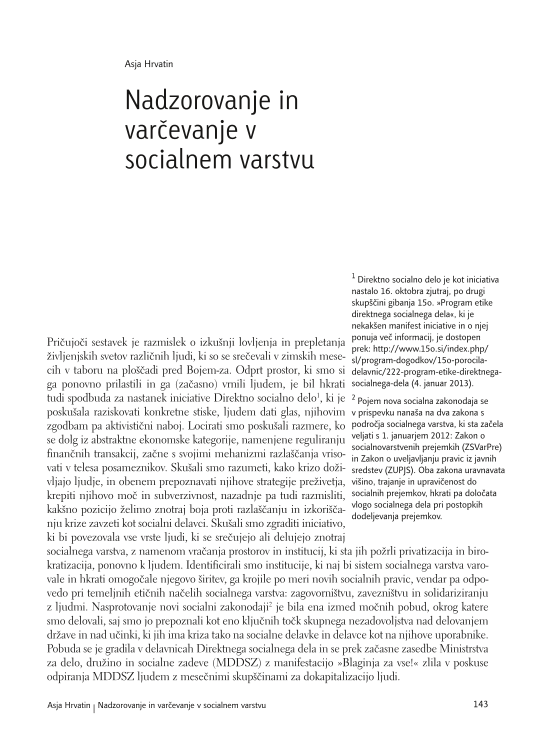One of the manifestations of the global crisis of financial capitalism and the policies arising from it was the imposition of austerity measures, which not only resulted in privatization of the commons and general expropriation of the people, but also managed to introduce new mechanisms of discipline and punishment. Debt, being the fundament of relations in society, forced itself into the system of social security: new legislation, regulating welfare benefits, has now shifted to a method for the criminalization of poverty, deepening class differences and transforming social workers (and the system of social security as a whole) into a moralizing, bureaucratic machine for disciplining the population. The new legislation also shows a lack of reflection on the changes that need to be made to the welfare state in order to create social services that meet the needs and desires of individuals. Instead of improvements that provide decent living conditions and a new system of social rights (to deal with the problems resulting from precarious working conditions), people are faced with depersonalization, humiliation and increased hate speech and other fascist practices.
The effect of austerity measures on the social security system does not end with the devastation of service users’ lives and their communities, which are slowly becoming exhausted, individualized and devoid of solidarity. It also means a big step backwards for the core ethics and principles of social work. Social workers are increasingly alienated from their clients and the communities they live in. They function more in the service of the government and its policies rather than as advocates of people’s rights.




